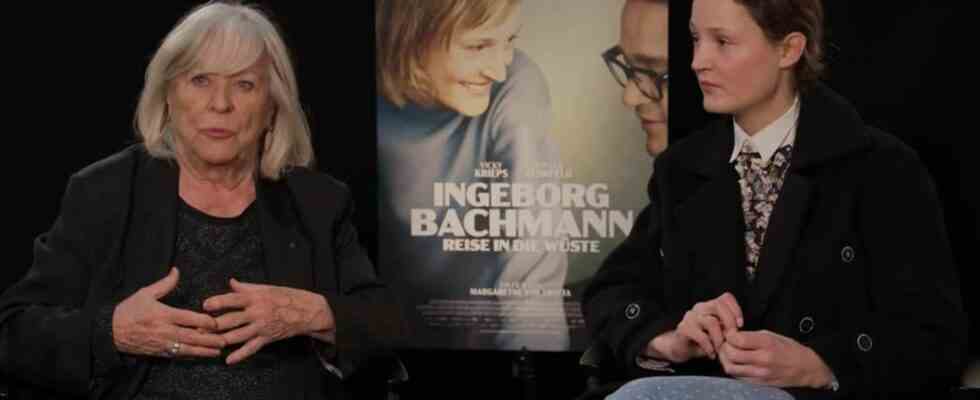STORY: Reunion with the Berlinale. The German director Margarethe von Trotta already presented her latest film “Ingeborg Bachmann – Reise in die Wüste” in Berlin at the weekend. It is her first competition entry in 40 years. The film tells the story of six years in the life of the eponymous Austrian writer and the relationship with her Swiss colleague Max Frisch, played by Ronald Zehrfeld. On Tuesday, her 81st birthday, the director, screenwriter and former actress spoke about her latest biopic together with Bachmann actress Vicky Krieps. “She thinks maybe it’s a different kind of connection and something where she can give herself a little, maybe, and be protected and benefit a little bit from its strength, apparent strength. And that of course then, as wrong assumption that he’s also very sensitive, but sensitive in a different way than she is, I found that interesting too.” She herself has had similar experiences. “I also experienced a story like that with Volker Schlöndorff. Two who do the same thing, so here two writers, there two – and I experienced a lot of them myself, from the connection and the difficulty, then also from love. It may be, that this time I could fall back on my own life a little bit more.” The narrative jumps from the two’s first meeting in Paris to Bachmann’s retreat to the Egyptian desert after their separation, painting a portrait of a woman who craves intimacy but finds the expectations of a relationship of the time increasingly overwhelming. “The fact that you can have such a depth of feeling at all, even though you are emancipated, although you say freedom, freedom, freedom and still not lose this depth of feeling, I think a woman should keep that, even if she feels pain because of it.” “The remarkable thing is that she allowed this depth and that she made herself so vulnerable in it that she honestly hoped. She honestly believed in a utopia, and I believe that her distrust of the language and of the people and the deals that we make as people, that’s not just marriage, that’s everything, I’m sitting here in the chair and I’m behaving and like this and we’re behaving like this and we’re behaving like this and they really questioned that and with an honesty that resembles a child.” The film is consistent with von Trotta’s earlier work, which focuses on powerful female historical figures such as Hannah Arendt and Rosa Luxemburg, cementing her status as one of the world’s leading feminist filmmakers.

